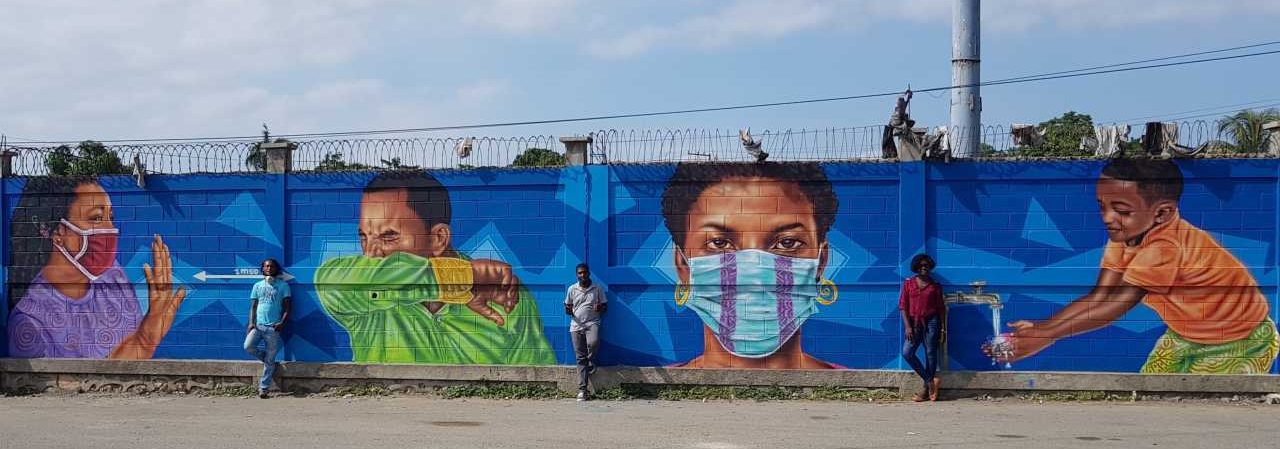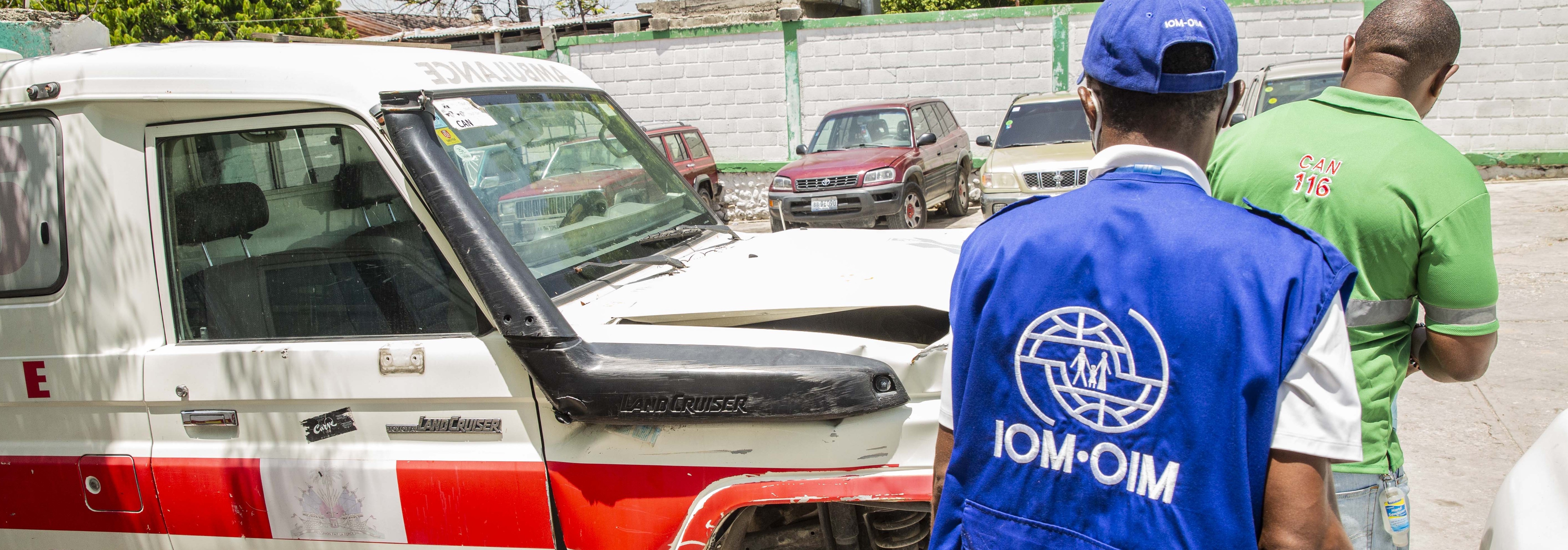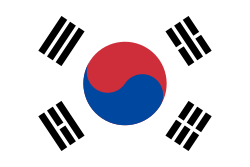IOM Vision
IOM, together with key stakeholders, including governmental, non-governmental actors and affected populations, is committed to addressing immediate and long-term mobility-related challenges in Haiti by enhancing the capacities of national institutions to better manage their borders and regional migration dynamics, reducing forced movement and the vulnerability of affected and at-risk populations, building resilience to identified risks, and mainstreaming migration into the development agenda through policy and legislation.
Objective
Saving lives and protecting people on the move
(1) Protracted IDPs and those at risk of protracted displacement; (2) vulnerable host communities in areas of displacement and communities of return where services are inadequate of overstretched; (3) IDP returnees, but are facing severe conditions or are affected by the growing gang activity of urban areas of Haiti; and (4) international vulnerable migrants in need of humanitarian assistance and access to basic services (health, psychological support, etc.).
IOM provides life-saving primary health services, referral and health facility support, in addition to mental health and psychosocial support in the most vulnerable areas such as the border, in informal displacement sites, and in areas of return, by:
- Improving access to health-care services to vulnerable populations in isolated or underserved areas of return and informal IDP sites through the provision of primary health care consultations, referrals to and from higher levels of care, and the provision of basic hygiene kits.
- Raising awareness on COVID-19 and preventive measures as well as conducting health promotion outreach activities in the most isolated areas as well as in the areas affected by the 2021 earthquake.
- Improving the capacity of health staff to safely and ethically respond to GBV potential situations and make necessary and timely referrals to appropriate available services.
- Continuing to support the capacity of the Government of Haiti to respond to the COVID-19 pandemic, in close coordination with the Ministry of Public Health (MSPP), through the strengthening of contact tracing, and critical infrastructure.
- IOM will coordinate with other UN agencies and humanitarian partners to provide technical and logistical support to the Government of Haiti during the COVID vaccination campaign, as well as to ensure access to migrants.
IOM will provide mental health and psychosocial support (MHPSS) with a focus on services which ensure a strengthened protective environment amongst the most vulnerable communities. All MHPSS activities will be in line with IOM's Manual on Community-Based Mental Health and Psychosocial Support in Emergencies and Displacement and will respect COVID-19 preventive measures (use of mask, hydroalcoholic gel available, PPE, as appropriate). Interventions will include:
- Facilitating referrals and access to available services and other measures to ensure social considerations and safety of beneficiaries.
- Making available IOM's 840 hotline to all beneficiaries, providing remote counselling and specialized MHPSS referrals.
- Capacitating and equipping MHPSS staff, including those operating the 840 hotline, to be able to safely and ethically respond to potential GBV cases and make necessary referrals to appropriate available service.
- Providing focused MHPSS services (individual and group counselling).
- Strengthening the capacity of civil society and government partners in the field of MHPSS.
IOM will assist IDPs currently in emergency shelters and in need of safe, voluntary and dignified movement assistance to leave the sites. All IOM interventions will respect COVID-19 preventive measures (use of mask, hydroalcoholic gel available, PPE, as appropriate). Initiatives will include:
- Coordinating pre-departure and transit assistance, including medical fit to travel certifications with IOM country offices and partners in neighbouring countries, and providing reception assistance upon arrival.
- Providing counseling and MHPSS services to targeted beneficiaries upon arrival.
- Provision of movement assistance by road.
- Providing post-arrival assistance to Haitians repatriated by air and by sea.
IOM will provide relief and assistance to the most vulnerable migrants and displaced people, including individuals with chronic diseases and disabilities, the elderly, and pregnant women as part of IOM’s comprehensive protection assistance. All IOM interventions will respect COVID-19 preventive measures (use of mask, hydroalcoholic gel available, PPE, as appropriate). Initiatives will include:
- Providing basic arrival protection kits and the coverage of the transportation fees for repatriated migrants to reach their communities of origin.
- Assignment of Operational Escorts to bus movements as appropriate and according to identified vulnerabilities (e.g. age, gender, mobility issues, unaccompanied minors).
- Providing specialized case management services at the individual and household levels, including management and referral of special cases such as victims of GBV and people in need of MHPSS.
- Providing training on detection and prevention of sexual exploitation and abuse (SEA), reporting and referral mechanism, and conducting awareness-raising activities on SEA and reporting mechanisms with the affected population.
- Raising awareness on trafficking in persons in the humanitarian context among at-risk communities and frontline service providers.
- Ensuring a robust approach to prevent and respond to sexual exploitation and abuse (PSEA), including the reinforcement of the capacity of relevant actors to address and manage such cases and conducting awareness-raising activities on the subject.
- Ensuring that protection is mainstreamed in all of IOM’s interventions through training of staff on protection principles and the Institutional Framework for Gender-Based Violence in Crises (GBViC) (risk identification and mitigation), adapting interventions’ designs to better include the needs of vulnerable groups and mitigate the barriers and risks they face in accessing services.
- Follow up and support of vulnerable cases in order to obtain documentation.
Given the current political and security instability in Haiti, it is imperative that technical and operational support continues to be provided to the National Office of Migration (ONM) – IOM’s primary interlocutor at the Government of Haiti, which is currently operating with very limited resources.
IOM has been co-leading the Haiti Shelter/NFI Working Group supporting the Haitian government (DGPC and the Unit for the Construction of Housing and Public Buildings (UCLBP) by providing technical and strategic guidance to national and international shelter partners, as well as coordination support. Activities include:
- NFI distribution to provide quick, life-saving assistance to the most vulnerable affected populations through the provision of plastic sheets, hygiene kits, blankets, collapsible water jerry cans and kitchen sets from the prepositioned warehouses located in Port-au-Prince, Les Cayes, and Jeremie.
- Supporting the Ministry of Public Works Transport and Communications (MTPTC) to conduct structural assessments across the communes in Southern Haiti affected by the earthquake. The assessments will bring light on the severity of damage caused by the earthquake to buildings and the types of rehabilitation works needed to meet the most urgent shelter needs.
- Establishment of a common pipeline service for the coordinated delivery of shelter and household items.
- Conducting basic infrastructure repairs (including rubble removal, environmental clean-up or emergency rehabilitation of community infrastructure).
IOM’s cash programme supports individuals affected by gang violence and earthquake through cash-based interventions to improve the basic needs integrated into various areas of IOM programming, such as CCCM, S-NFI, and protection. IOM is also providing emergency assistance to returnees repatriated to Haiti from air and sea.
- Providing cash assistance for relocation of IDPs affected by the earthquake.
- Providing rapid earning opportunities through cash for work and cash for repair to unskilled and semi-skilled individuals, to promote the rehabilitation of houses and basic community infrastructures
- Providing food and water to Haitian returnees repatriated by air or intercepted at sea.

Objective
Driving solutions to displacement
(1) Protracted IDPs requiring a better assessment of their situation and support for a safe and sustainable voluntary return; (2) deportees and communities in areas of return in need of basic services, livelihoods, safety and security; and (3) government authorities, civil society organizations and NGOs requiring capacity building and greater stability for the resumption of services.
IOM will contribute to the strengthening of Haitian health systems through:
- Improving access to mental health services through the establishment of Standard Operational Procedures (SOPs) for mental health cases and clear referral pathways to specialized care.
- Supporting health facilities in crisis-affected governorates and areas of return through rehabilitation and upgrades in health infrastructure, as well as the provision of critical operational medical supplies and equipment (i.e. Personal Protective Equipment, telecommunication for referrals, etc.).
- Improving capacities of health facilities supported by IOM and partners, by working with the Ministry of Health to establish and implement SOPs for the screening and referral of migrants in need of health support, and enhancing knowledge and technical expertise on different aspects of emergency health. This will include the building capacity of health staff to safely and ethically respond to GBV potential situations and make necessary and timely referrals to appropriate available services.
IOM will contribute to peacebuilding efforts in the country by strengthening communities’ capacity to promote the peaceful resolution of conflicts and responding to threats that might lead to relapse into conflict or violence. IOM will ensure all interventions respect COVID-19 preventive measures (use of mask, hydroalcoholic gel available, PPE, as appropriate). Interventions will include:
- Fostering political and economic transformation intended to reduce or mitigate conflict drivers through the creation of spaces for dialogue around migration and security between the Government of Haiti and neighbouring countries.
- Creating strong partnerships between the government, other UN agencies and humanitarian partners in the field of migration and security.
- Improving access to justice and peacebuilding capacities of local institutions and associations to mitigate risks of conflict.
- Prevent and respond to GBV and related issues at the border.
Following IOM’s Progressive Resolution of Displacement Situations (PRDS) Framework, IOM's durable solution programming will support the most vulnerable IDPs through:
- Supporting government and local authorities with capacity building interventions aimed at covering gaps in available basic social services for displaced populations.
- Ensure legal and physical access of displaced populations to local economic opportunities, enabling self-reliance and reducing dependency.
IOM's initiatives to support the most vulnerable and foster community stabilization will include:
- Identification of key economic sectors (e.g. agriculture, textile, fisheries, etc.) in migration-prone areas for the development and implementation of short-term training programs and income-generating activities that prevent vulnerable groups to resort to migration as a coping strategy.
- Supporting displaced populations and people at risk of protracted displacement through inclusive access to and the provision of essential services, promotion of social cohesion, building the capacity of state and local governance, and promoting non-violent conflict resolution.
- Conducting cash for work activities that have already proved to be effective during and following a crisis, laying the foundation for durable solutions and contributing to community stabilization.
- Undertake earthquake debris removal activities by temporarily employing local laborers to clear rubble along main roads to support early recovery
Objective
Strengthen preparedness and reduce disaster risk
IOM will support (1) the Government of Haiti, including national and local authorities; and (2) community leaders to better equip them to deal with disaster management to reduce risks facing Haiti. In addition, IOM will also support (3) the government and (4) non-governmental actors in their efforts to include and mainstream preparedness and risk reduction.
Despite the efforts made to date by the sector, the most urgent shelter-NFI needs remain partially unaddressed and the most vulnerable Haitian populations are still exposed to high risks. All IOM interventions will take into account specific vulnerabilities of targeted groups (i.e. women, pregnant women, people with disabilities, elderly, etc) and will respect COVID-19 preventive measures (including use of mask, hydroalcoholic gel available and PPEs, as appropriate). IOM’s initiatives to support the most vulnerable will include:
- Building community capacity emergency alert systems, including management of evacuation shelters.
- Reinforcing the capacity of the General Directorate of Civil Protection (DGPC) to prepare and respond to a crisis through capacity building activities on inventory, management and distribution of NFIs and warehouses.
- Pre-positioning of NFI contingency stock.
- Rehabilitating evacuation shelters according to SPHERE standards (Humanitarian Charter and Minimum Standards in Humanitarian Response) and building institutional and community capacity for the establishment of complaint mechanisms.
IOM’s initiatives to support the most vulnerable to avoid existing and new disaster risks include:
- Raising awareness among local artisans and communities about the implementation of safer construction systems.
- In consultation with affected populations and taking into account specifics of the most vulnerable groups (i.e. women, people with disabilities, elderly, etc.), developing early warning mechanisms and risk information systems.
- Conducting multi-hazard risk assessments, promoting community engagement and enhancing the local response through participative awareness-raising activities.
- Training of relevant government institutions to develop national contingency plans.
- Ensuring all IOM interventions are in line with COVID-19 preventive measures (including use of mask, hydroalchoholic gel available and PPE, as appropriate).
Objective
Contribute to an evidence-based and efficient crisis response system
IOM's DTM data will benefit (1) relevant governmental authorities; (2) UN agencies; and (3) humanitarian partners in the field.
To support the broader response, IOM will:
- Strengthen coordination with national and local authorities as well as key partners through organization of sectorial meetings to provide a more coherent response to the earthquake and displacement situation.
- Provide training on humanitarian principles such as protection from sexual exploitation and abuse (PSEA), and accountability to affected populations (AAP), and reporting to ensure that funds are used effectively by NGOs.
In a context of high political instability and increasing social and economic insecurity, IOM aims to support the Government of Haiti in monitoring the migration flow (land, sea and air) to ensure information gathering in order to profile and assess the needs of vulnerable migrants. In order to do so, IOM will:
- Continue with the deployment of Displacement Tracking Matrix (DTM) capacity at official and unofficial points of entry (PoE), as well as in remaining IDP camps and vulnerable neighbourhoods affected by the growing violence, where displacement situations have been occurring since September 2020. DTM data will allow the identification of protection and preparedness needs.
- Provide timely and accurate information of the displaced population and the IDP sites that have been formed in the Southern departments of Sud, Grand’Anse and Nippes in the aftermath of the 2021 earthquake to guide the humanitarian response as well as the transition towards return and recovery.
- Train governmental partners in data gathering to support the collection of information from vulnerable areas affected by the increasing violence, where access is not ensured for IOM staff.
- Produce regular information products (reports) on comprehensive, multi-sectoral data which highlights emergency and immediate needs to be addressed, as well as the need for reintegration opportunities.
Haiti
The map used here is for illustration purposes only. Names and boundaries do not imply official endorsement or acceptance by IOM.
Figures are as of 31 December 2023. For more details of IOM's operational capacity in country, please see the IOM Capacity section.


















